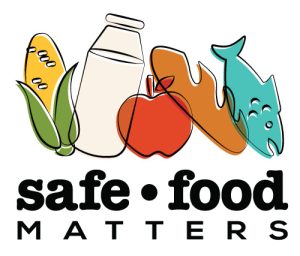Genetic engineering (GE) is a technique applied to food (and other living organisms) whereby the gene structure of the food is modified or edited in a way that would not occur in nature.
Our first concern with GE is that the risks to human health associated with it have not been studied long term. Our second concern is that we do not know which foods we are eating have been gene edited and which have not: so we don’t have the information needed to choose whether to eat GE foods or not.
Our government and industry assumes that GE is safe, even though it can cause unintended effects on the genes of the crops we eat, and also on other structures of these plants. Our bodies were designed to absorb food in its natural form, and we don’t know what could happen to us if this is changed unless it is examined. Nevertheless, the government is now allowing industry to self-regulate on whether to assess the safety of a GE product and on whether to even report that a product is GE to Health Canada.
We believe that GE products should be subjected to long-term human health risk assessments before they are allowed to be consumed by people, and that proper labelling of GE products should occur so people can make informed, safe food choices.
SAFE FOOD MATTER'S WORK: SUMMARY
Safe Food Matters’ targets the regulatory process surrounding gene edited foods. We have published articles on the abandonment of regulatory authority by Health Canada when it comes to these foods, and also provided comments on Health Canada’s “Proposed New Guidance for Novel Food Regulations focused on Plant Breeding”, and the two associated consultation documents.
We have also pointed out the concerns with approving GE Salmon, and the new techniques of synthetic biotechnology.
GE Foods
In July, 2022, Health Canada published the Guidelines for the Safety Assessment of Novel Foods. These Guidelines allow industry to bring to market and release many sorts of GE foods without conducting a risk assessment, without making any risk assessment public, and without informing the public as to which foods have been gene edited.
Health Canada will only continue to regulate foods that have foreign DNA inserted into them, not those in which DNA has been manipulated or removed. In contrast, European authorities regulate all gene edited foods.
Safe Food Matters is of the view that the Guidance amounts to an abdication of regulatory authority and an improper delegation of authority to industry. Health Canada holds the legal authority to regulate for the health of Canadians and the safety of Canada’s food supply, and by not retaining jurisdiction over the safety of GE foods, it is abandoning its mandate.
Health Canada states in the Guidelines that “It is well established that plant developers consider whether there are possible risks to food safety linked to the new characteristics that they have or plan to introduce in the plant”. Safe Food Matters does not believe that this fact is “well established”.
We also believe there are harms that are reasonably foreseeable arising from consumption of GE foods, and Health Canada should be held to account for these harms. If or when such harms occur, in our view they will meet the test of being “reasonably foreseeable” that is required for a claim of regulatory negligence.
These arguments have been pointed out to Health Canada. They were set out in the comments we submitted to them in Spring, 2022, embedded in our post Corporate “Controllover” of Health Canada on Gene-Edited foods.
REGULATORY / OTHER FILINGS
Regulatory filings
2021 06 01 – Comments to Health Canada on New Guidance for Novel Foods
What You Can Do
On the concerns with the Guidelines, follow the Canadian Biotechnology Action Network, and any actions they may propose.
- Target your grocer, and tell them you do not want gene edited foods on your table.
- Target your MP, and tell them you want labelling of GE Salmon, and other GE foods.
- Eat organic. The Canadian Organic Standard prohibits gene edited and other genetically engineered products.

